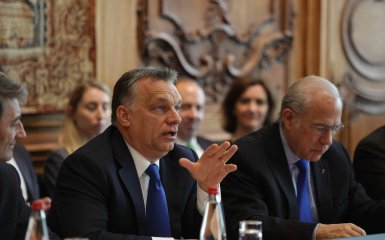Representatives of the European Commission are encouraging the Hungarian authorities to abandon their plans to purchase Russian gas and reduce their vulnerability to Kremlin influence.
What is known about the conflict between Brussels and Budapest over Hungary's relations with Russia
In particular, EU Energy Commissioner Kadri Simson urged the Hungarian authorities to stop buying Russian gas and reduce their vulnerability to Kremlin influence.
Last month, Russia's Gazprom announced that it would increase natural gas supplies to Hungary over the winter following talks between Hungarian Prime Minister Viktor Orban and Russian President Vladimir Putin in Beijing.
Even Hungary knows that by continuing this activity, they are giving Russia the opportunity to manipulate their market. I know of one political leader in Europe who shakes hands with this war criminal, and no one else, Simson said.
The European Commissioner pointed out that the European Union as a whole has dramatically reduced its dependence on Russian gas, and even vulnerable members such as Slovakia and Bulgaria plan to gradually phase out energy imports from Russia by 2027.
Under an agreement signed last year, Hungary receives 3.5 billion cubic metres of gas a year via Bulgaria and Serbia and another 1 billion cubic metres via a pipeline from Austria. The agreement with Gazprom is for 15 years.
It also criticised Hungary for cooperating with Russia in the Paks II nuclear reactor project, which depends on support and nuclear fuel from Russia.
What is known about the joint construction of the Paks II nuclear power plant by Russia and Hungary
Hungarian Foreign Minister Péter Szijjártó announced the signing of an agreement with Russia on the construction of the Paksh-2 nuclear power plant.
We have signed the construction schedule for Paks-2, on the basis of which we will connect the new nuclear power plant to the grid at the beginning of the next decade. It has been a long way, but we are finally talking about construction, not documents,"Sijarto said.
On the Russian side, the document was signed by the head of the Rosatom Corporation Alexei Likhachev. According to him, Rosatom will pay "special attention" to this project and plans to allocate "the best forces" to it.
The Paksh NPP was built in the last century according to the Soviet design and has four VVER-440 power units with a total capacity of 2000 MW. The lifetime of the power units expires between 2032 and 2037.
According to the documents, two new power units with VVER-1200 Generation 3+ reactors will be built. However, their construction will be slowed down due to a lengthy procedure for obtaining approval from the European Commission.
At the same time, in 2022, Hungary issued a licence to Rosatom for the construction of the Paks-2 NPP, despite the fact that the company is involved in the seizure of the Zaporizhzhya NPP in Enerhodar.
More on the topic
- Category
- World
- Publication date
- Додати до обраного


